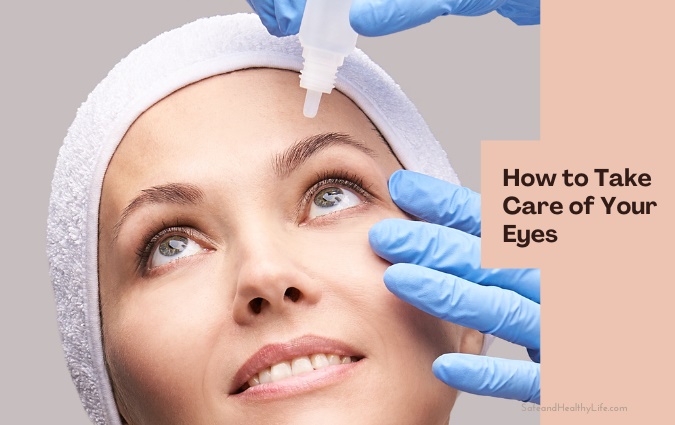
This is a guide to taking care of your eyes. It’s easy to forget about your vision, but it’s something you should do every day if you want to see well into your golden years.
If you don’t get enough sleep or maintain a healthy diet, chances are good that you’re setting yourself up for serious eye problems later on.
So take a minute right now and read this list!
Regular eye exams
To keep your eyes healthy and protected, it’s essential to visit an eye doctor on a regular basis.
A yearly exam is sufficient for most people, but if you have a family history of eye problems or are over 40 years old, then you should consider getting one every two years instead.
Eye doctors in Ohio can examine your eyes and check for signs of problems like glaucoma, cataracts, and macular degeneration. If you do have a condition, they can recommend treatment options, including medications and surgery.
The best way to get the most out of your exam is by scheduling one at least three months in advance so that you have time to prepare for it (e.g., bring along any necessary documents).
It’s also helpful if the doctor has some idea of what kind of treatment they might recommend before they meet with you; this will help them make more accurate recommendations based on their knowledge and experience as well as yours!
Watch your weight
You may have heard that being overweight can cause vision problems. This is true, but it’s also important to note that excess weight puts strain on the eyes.
Excess weight is a risk factor for diabetes and heart disease, both of which can result in eye problems such as cataracts and macular degeneration.
Diabetes is linked to stroke as well; stroke often causes blindness because blood vessels are damaged by internal bleeding (hemorrhage).
Keep moving
Exercise is good for your eyes. It helps keep your blood pressure from rising, and it also helps you sleep better. In addition, exercise reduces stress – a factor that can lead to eye strain over time.
If you have trouble sleeping at night due to stressors in your life, try going for a run or doing something else active during the day.
This will help give the body a break so that it needs less rest when it comes time for bedtime (and hopefully longer stretches of uninterrupted slumber).
Get enough sleep
Sleep is crucial for eye health. Without enough sleep, your eyes can become dry and irritated, which leads to even more problems like blurry vision or even blindness.
Lack of sleep can also cause high blood pressure and diabetes in some people. This is because when you don’t get enough sleep, your body thinks it’s time for another meal – and sometimes that means eating unhealthy foods with more calories than necessary!
Wear UV-blocking sunglasses and a hat outside
The sun, especially when it’s ultra-bright and hot, can damage your eyes if you aren’t careful.
Wearing sunglasses is the best way to protect yourself from harmful rays of light that damage cells in the retina—the part of our eye that sends images to our brain but also makes us squint when we look at something for too long.
Quit smoking
Smoking is terrible for your health, and it can also be bad for your eyes. Smoking has been linked to cataracts, macular degeneration (a condition that causes the loss of central vision), glaucoma (a painful eye disease), dry eyes, and eyelid problems.
The dangers of smoking are so great that many countries have banned smoking in public places or restricted its sale to adults only.
Stop staring at screens so much
Look away from your screen every 20 minutes (or more) while you’re working on something that requires focus, like homework or reading a book/magazine/newspaper (no social media).
When looking at something far away for 20 seconds, try to imagine how it would appear if there were no glare on the screen.
This will help reduce eye strain and make it easier to focus on what’s being displayed on the screen instead of having this constant source of light behind them constantly distracting them from what they’re doing.
While working with close-up imagery such as photos or drawings/sketches, try using different types of lighting in order to simulate natural sunlight coming through windows without having any artificial sources nearby.
Conclusion
We hope you’ve found this guide helpful in learning about the importance of eyesight, and we encourage you to start caring for yourself now!
If you have any questions or comments, please feel free to reach out.
About The Author:
Angela Smith a Blogger and also a mother of a five-year-old son. Generally, She writes blogs regularly and shares ideas on baby care, environment, health, and nutrition.




